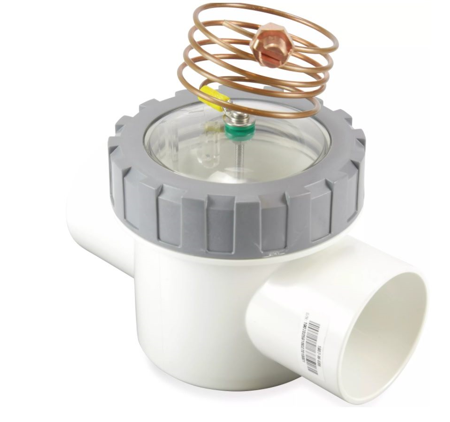- Last updated Oct 20, 2021
- Swimming Pool, Water Treatment
Sacrificial Anode
Introduction
A sacrificial anode, usually made from zink, is a device that protects the metal components and hardware of a pool from corrosion damage by conducting electric currents through the water during chlorine production. The sacrificial anode is an anti-electrolytic device that is relatively easy to install, affordable and can be installed in the pool where needed.
Sacrificial anode chemistry
This can be confusing when it comes to pool chemistry, but the principle behind a sacrificial anode is relatively simple. Instead of flowing electricity through your pool water to other metal components in your pool, it will be attracted to the zinc anode. The zinc anode will break down over time and self-destruct, so no other metal in your pool will be affected by electrical damage.
Zinc anodes have been used in the marine industry for decades for a variety of applications, including electric welding. The simplest function of an anode is to destroy or sacrifice itself before other metals that are part of the same underwater electrical system. In a pool, the metal components that protect the anode include a ladder, stairs, pool heater components, or anything metallic and submerged in salt water.

Function of the sacrificial anode
Anything made of metal and immersed in your swimming pool creates an electric voltage. The salt cell [Cl dosing] in the salt water works to break down the salt into sodium and active chlorine to fight the bacteria in your pool by passing electrons. This means that anything that is metallic and comes into contact with the water in your pool is likely to cause an electric current and corrode. Items that could be damaged, degraded, or discolored if your pool chemistry goes out of balance include:
- Heat pumps
- Filters
- Metal fittings
- Metal steps and stairs
- Light fixture homes
The process by which a zinc topping anode works to protect the metal in your pool is called cathodic protection. Zinc has a higher active voltage than other metals, so it will break down before any damage is done to the surrounding metal. The offensive forces of oxidation and reduction take place at the sacrificial anode instead of the metal in your pool. An anode lasts at least 6-12 months, and it is sufficient to inspect the anode annually.